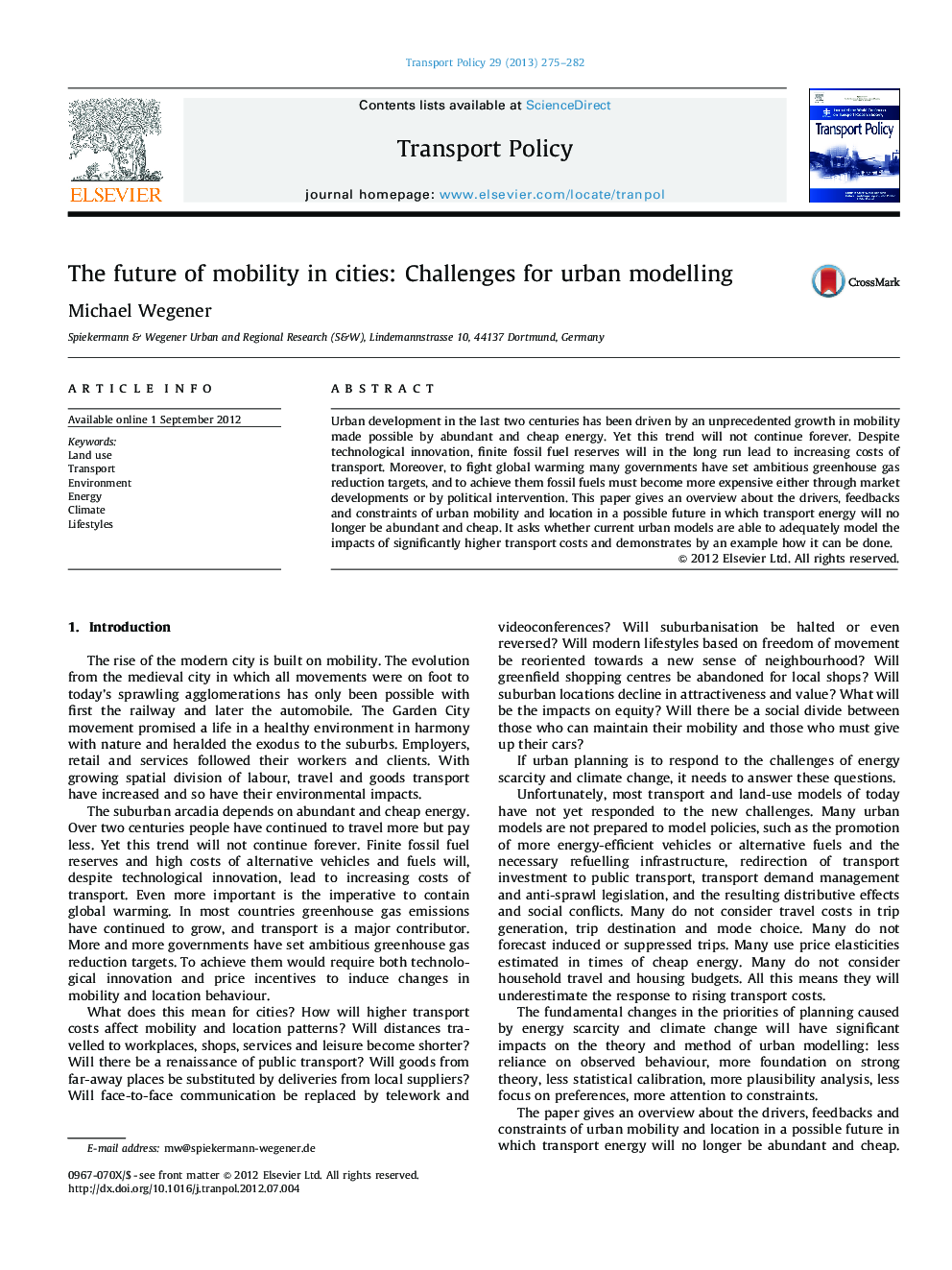| Article ID | Journal | Published Year | Pages | File Type |
|---|---|---|---|---|
| 1064965 | Transport Policy | 2013 | 8 Pages |
Urban development in the last two centuries has been driven by an unprecedented growth in mobility made possible by abundant and cheap energy. Yet this trend will not continue forever. Despite technological innovation, finite fossil fuel reserves will in the long run lead to increasing costs of transport. Moreover, to fight global warming many governments have set ambitious greenhouse gas reduction targets, and to achieve them fossil fuels must become more expensive either through market developments or by political intervention. This paper gives an overview about the drivers, feedbacks and constraints of urban mobility and location in a possible future in which transport energy will no longer be abundant and cheap. It asks whether current urban models are able to adequately model the impacts of significantly higher transport costs and demonstrates by an example how it can be done.
